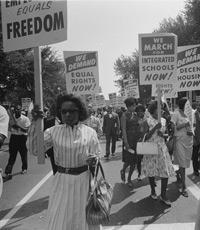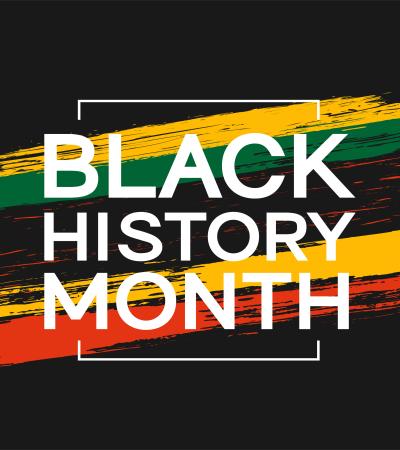First recognized in 1976, African American History Month celebrates the vital role African Americans have played in American history. The month often has a theme; in 2012 it was “Black Women in American Culture and History.” Other recent themes include “African Americans and the Civil War” in 2011, “The History of Black Economic Empowerment” in 2010, “The Quest for Black Citizenship in the Americas” in 2009, and “Carter G. Woodson and the Origins of Multiculturalism” in 2008.

General Information
The government’s primary African American History Month website was developed by the Library of Congress, the National Archives and Records Administration, the National Endowment for the Humanities (NEH), the National Gallery of Art, the National Park Service, the Smithsonian Institution, and the United States Holocaust Memorial Museum. It offers a wealth of resources, such as images, audio and video, and information on exhibits and collections, including online exhibitions. The National Park Service, and the Smithsonian Institution also have websites devoted to African American History Month.
Library Programming
Programming at Houston (Tex.) Public Library included, for children, talks from Houston’s first African American ballerina, Lauren Anderson, story times that included drums and other instruments from Africa, an impersonator/storyteller embodying Harriet Tubman, and a presentation by an award winning children’s book illustrator. Programs for adults included book discussions with authors, film discussion with the filmmakers of a documentary about the integration of a Houston neighborhood, and performances by local jazz and blues musicians throughout the month.
The St. Louis Public Library offered African American history programming throughout its branches, including an African-American Read-In Chain; a discussion and book signing by Jamala Rogers, author of The Best of the Way I See It; a visit by storyteller Loretta Washington, who portrayed Phyllis Wheatley, Sojourner Truth, and Harriet Tubman; film viewings of Wild Women Don’t Have the Blues, Zora Neale Hurston: Jump at the Sun, At the River I Stand, Journey to Little Rock: The Untold Story of Minnijean Brown Trickey, and Rivers of Change: The Legacy of Five Unheralded Women in Montgomery and Their Struggle for Justice and Dignity: A Documentary; Writing Away the Blues, and opportunity to write and enjoy poetry while listening to Billie Holiday, Lena Horne, and other female African-American performers; and a keynote address by social equality activist and author Angela Davis.
The DC Public Library partnered with the Smithsonian Institution to bring children’s programming to the library for African American History Month. The Smithsonian Institution National Museum on African American History and Culture presented its “Mission: Preservation” program at eleven branches, and the Smithsonian Associates Discovery Theater on Tour presented “How Old is a Hero?” facilitated by Class Acts Arts at six branches in wards 7 and 8.
Teaching Resources
The teachers’ section of the African American History Month website offers a round-up of resources from the Library of Congress, the National Archives, NEH, the National Gallery of Art, and the National Park Service. Topics include civil rights; the Civil War; slavery, and African American art and artists, such as the Memorial to Robert Gould Shaw and the Massachusetts Fifty-fourth Regiment, Romare Bearden, Sam Gilliam, Jacob Lawrence, and Martin Puryear.
EDSITEment offers a guide to teaching resources that cover African American history from Africa to colonial America through African Americans in the global age.
Smithsonian Education offers a number of lessons on African American history, including The Art and Life of William H. Johnson; Black Wings: African American Pioneer Aviators; The Blues and Langston Hughes; African American Portraits; and an African American Virtual History Tour.
The University of Illinois Extension Program has a list of online African American history resources, including lesson plans and models.
Science NetLinks and the American Association for the Advancement of Science developed a number of science-related lessons for African American History Month.
Additional Resources
The Middletown (N.Y.) Thrall Library has African American history–related titles and topics as well as lists of databases, online reference works, and other resources available online.
The State Library of North Carolina includes links to history and reference resources, historic attractions, genealogy resources, organizations, historically black colleges and universities, demographics, and youth resources as well as a spotlight on notable African American North Carolinians.



